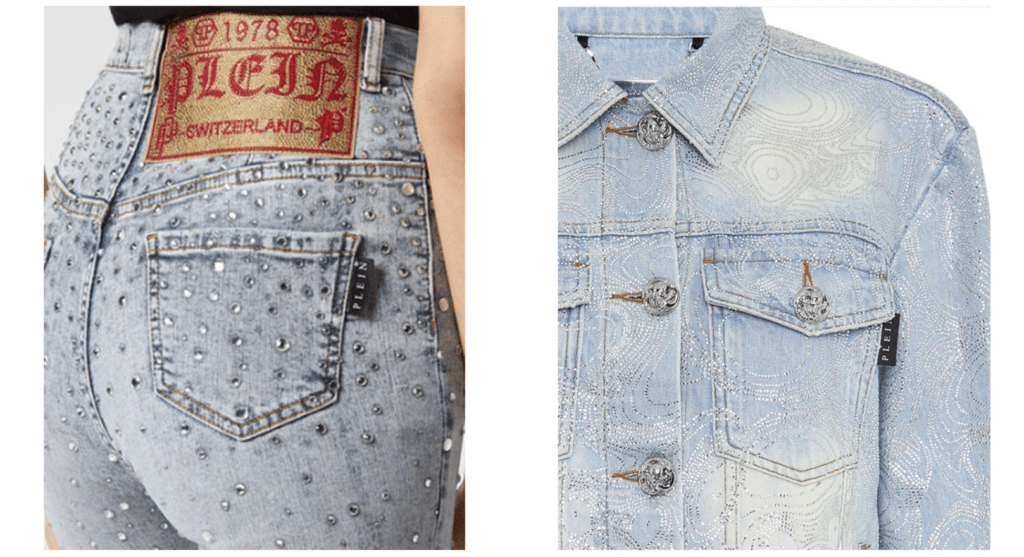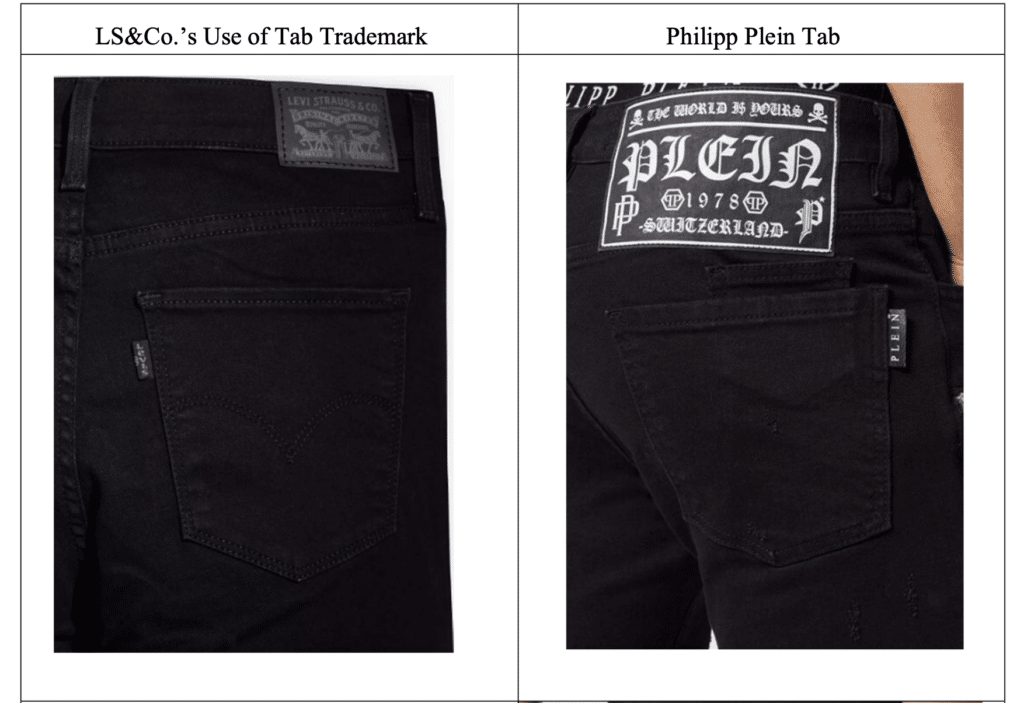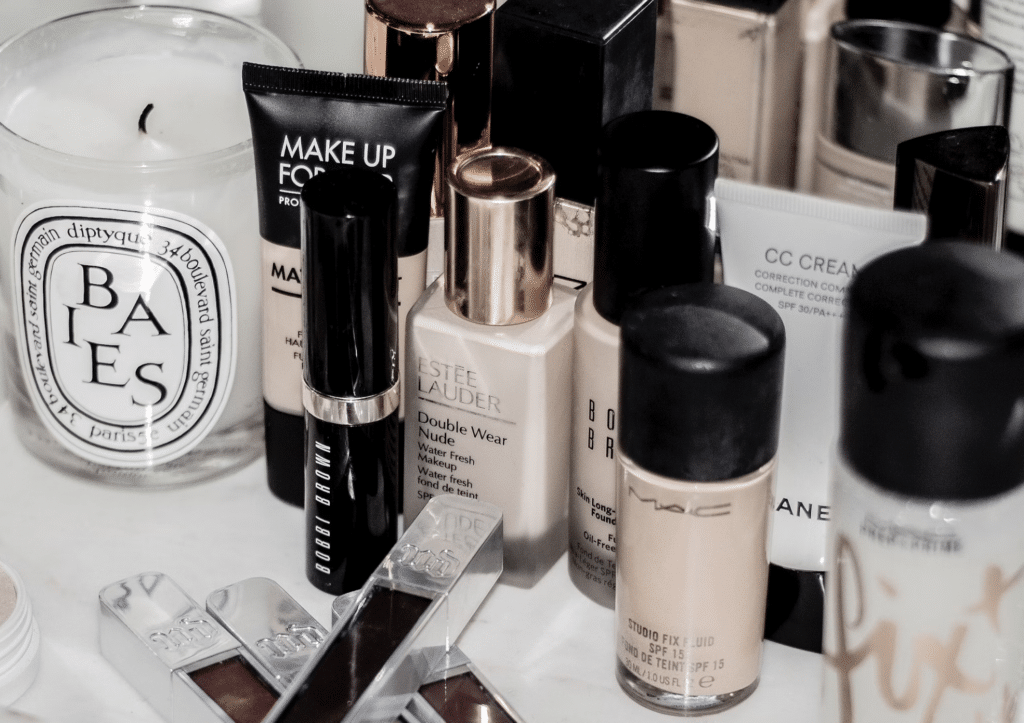Levi Strauss & Co. is back at it with a new trademark infringement lawsuit, this time targeting Philipp Plein. In the complaint that it filed with the U.S. District Court for the Northern District of California on December 16, Levi’s claims that “beginning at some point in the past and continuing until the present,” Philipp Plein has “manufactured, promoted, and sold garments that infringe and dilute LS&Co.’s tab trademark.” Lugano, Switzerland-based Philipp Plein is the latest in a long list of fashion brands that have landed on the receiving end of trademark lawsuits waged by Levi’s, which is known to aggressively enforce its rights in its tab device.
In the case at hand, Levi’s alleges that the small fabric tab that appears on Plein’s garments, including jeans, and denim shirts, skirts, and jackets, is a “nearly-identical copy of LS&Co.’s Tab trademark.” Levi’s claims that Philipp Plein’s use of a lookalike tab on its products is “likely to cause consumer confusion about the source of [Philipp Plein’s] goods and services or about a relationship between LS&Co. and [Plein], and is likely to dilute LS&Co.’s Tab trademark.”

Delving into the likelihood that consumers will associate Philipp Plein’s tab-bearing wears with its brand, Levi’s claims that its tab trademark is “famous and recognized around the world and throughout the United States by consumers as signifying authentic, high-quality LS&Co.’s garments.”
And potentially looking to get ahead of any arguments that counsel for Philipp Plein might make in response to the lawsuit about how the two companies occupy different segments of the market and offer up products at relatively different price points, Levi’s asserts that in addition to its core collection of products, it also uses its tab trademark in connection with “many of its collaborations with other brands.” This includes collaborations with “some of the most well-respected designers and fashion houses in the industry,” per Levi, such as Valentino, Kenzo, Reese Cooper, and Miu Miu.
Based on its investigation, Levi’s says that Philipp has “manufactured, sourced, marketed, and sold substantial quantities of garments bearing [a lookalike] tab, and [has] obtained and continue to obtain substantial profits from these sales.” At the same time, Levi’s argues that Philipp Plein’s alleged infringement is “depriving [it] of its rights to use and control use of its trademarks and maintain its reputation with consumers, licensees, and collaborators, including the exclusive use of its trademarks on products and services that [it] creates, produces, licenses, and sells.”

Moreover, Philipp Plein is “causing incalculable and irreparable damage to LS&Co.’s goodwill, reputation, and standing with consumers, licensees, and collaborators; diluting the capacity of LS&Co.’s tab trademark to differentiate [its] products from others; causing LS&Co. to lose sales of its genuine clothing products; and causing others to believe the distinctive features of the Tab trademark may be misappropriated for their use,” among other things.
Despite its attempts to resolve this matter short of litigation, San Francisco-based Levi’s alleges that Philipp Plein has “ignored LS&Co., and – on information and belief – [has] instead continued to manufacture, promote, and sell products bearing the infringing and diluting mark.”
With the foregoing in mind, Levi’s sets out claims of trademark infringement, unfair competition, and trademark dilution under federal and state law. It is seeking monetary damages and injunctive relief.
The case is Levi Strauss & Co. v. Philipp Plein International AG, 3:24-cv-09088 (N.D. Cal.).













